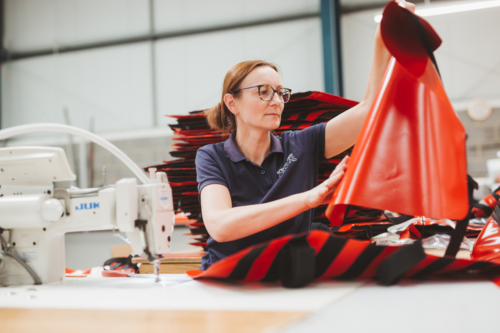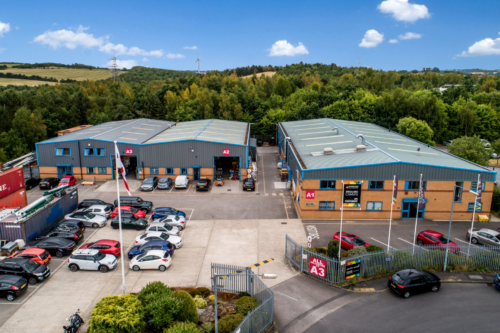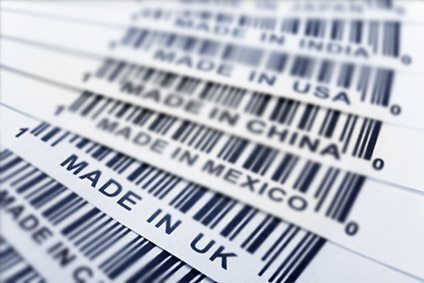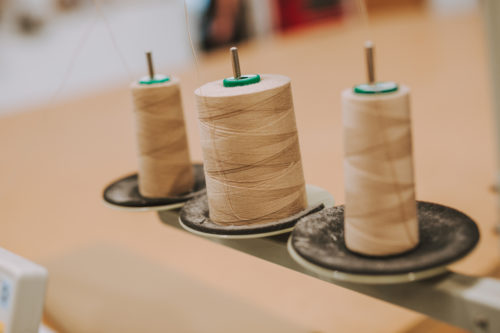Make an enquiry
Complete the form and a member of our team will be in touch
Complete the form and a member of our team will be in touch
2021 has continued where 2020 left off, delivering challenges for businesses and individuals with the ongoing economic impact of Covid-19 and the final exit of the UK from the European Union. Whilst the economy has shrunk considerably overall from pre-pandemic levels, the impact has been un-equally distributed with notable sectors such as Hospitality, The Arts, Non-Food Retail and Tourism hit particularly badly. However, other areas such as manufacturing, and construction have seen a smaller impact and in some cases growth.

During 2020 there was considerable talk of ‘Pivoting’. Where businesses were able to address a demand by adapting or changing their model with a new product, or changing their method of distribution by shifting their focus online. At Specialised Canvas, we were able to make a pivot during Q1 & Q2 2020 by converting part of our facility to the manufacture of PPE products including visors, gowns, aprons and body bags.
Many other SME’s also found that they too could adapt their model to changing market demand. Some of this was driven by Covid related shortages but also other trends such as in-home spend on furnishings and DIY products saw a bounce as people were forced to stay at home. Within our business we saw the initial demand for PPE diminish within 8 weeks of the first spike in demand. Buyers quickly reverted to established suppliers once availability improved, and we recognised that it would be necessary to revert to core business as soon as possible.
Fortunately, because manufacturing was allowed to continue working throughout the lockdown periods we were able to keep servicing demand. Our 3500 m2 UK facility is designed for the manufacture of large products, therefore it was possible to implement effective social distancing measures without huge compromises on the factory layout.

Moving into 2021 many of the trends seen in late 2020 have continued. The very late Brexit agreement left importers and exporters scrambling to interpret the new regulations and requirements for moving goods in and out of the UK. High profile border delays for perishable or time-sensitive deliveries have attracted media attention but there are considerable problems for importers of goods of all classes.
The costs of shipping have risen dramatically and delays are impacting businesses in all sectors. One of our suppliers is reporting the cost of moving a container into the UK has risen astronomically from £2000.00 to £12,000.00! In my opinion, the full impact of movement restrictions is being masked by reduced volumes due to COVID-19 and several companies choosing to delay shipments rather than risking sending them to the ports.
A consequence of this upheaval is a very noticeable trend towards re-shoring/on-sharing. Customers are seeking UK suppliers for products that they previously imported from both Europe and further afield. Around 30 years ago there was a mass exodus from the UK for much of the textile industry with virtually all volume clothing manufacturing and many other fabric products moving to places of lower employment cost, typically eastern Europe and Asia. However, the trend is reversing and there is good reason to believe that this could be an enduring change rather than a knee-jerk.
As global economies have developed, the costs of employment have risen and the cost-benefit of off-shore manufacturing has diminished. Add to this the rising costs of transport, loss of control of quality, manufacturing lead times, large minimum order sizes, and all of a sudden there are good reasons to look again at manufacturing your products in the local (country) market where they are required.

For Specialised Canvas this has resulted in multiple opportunities for the production of goods that customers want to re-shore, ranging from domestic products to industrial and medical items. There is a clear trend in this area with no focus on specific sectors or clients with demand. Suggesting this is an economy-wide requirement.
The loss of the UK volume textile industry means that the latent capacity in sewn products has shrunk. Those businesses that remain have become highly skilled and efficient, investing in automation and training, and have facilities that can make specialist goods economically in a higher-wage economy, including getting them to market faster than imports. This is creating demand for Specialised Canvas and similar manufacturing SME’s who have played the long-game and continued to invest in their people and premises.
Unlike the shock of 2020, businesses have learnt to adapt to the challenges of working in a pandemic. The rest of 2021 will be a very challenging year for the economy as a whole but manufacturing and textile business have an opportunity, and a responsibility, to open up capacity to service demand that shows no signs of going away anytime soon.
Managing Director
